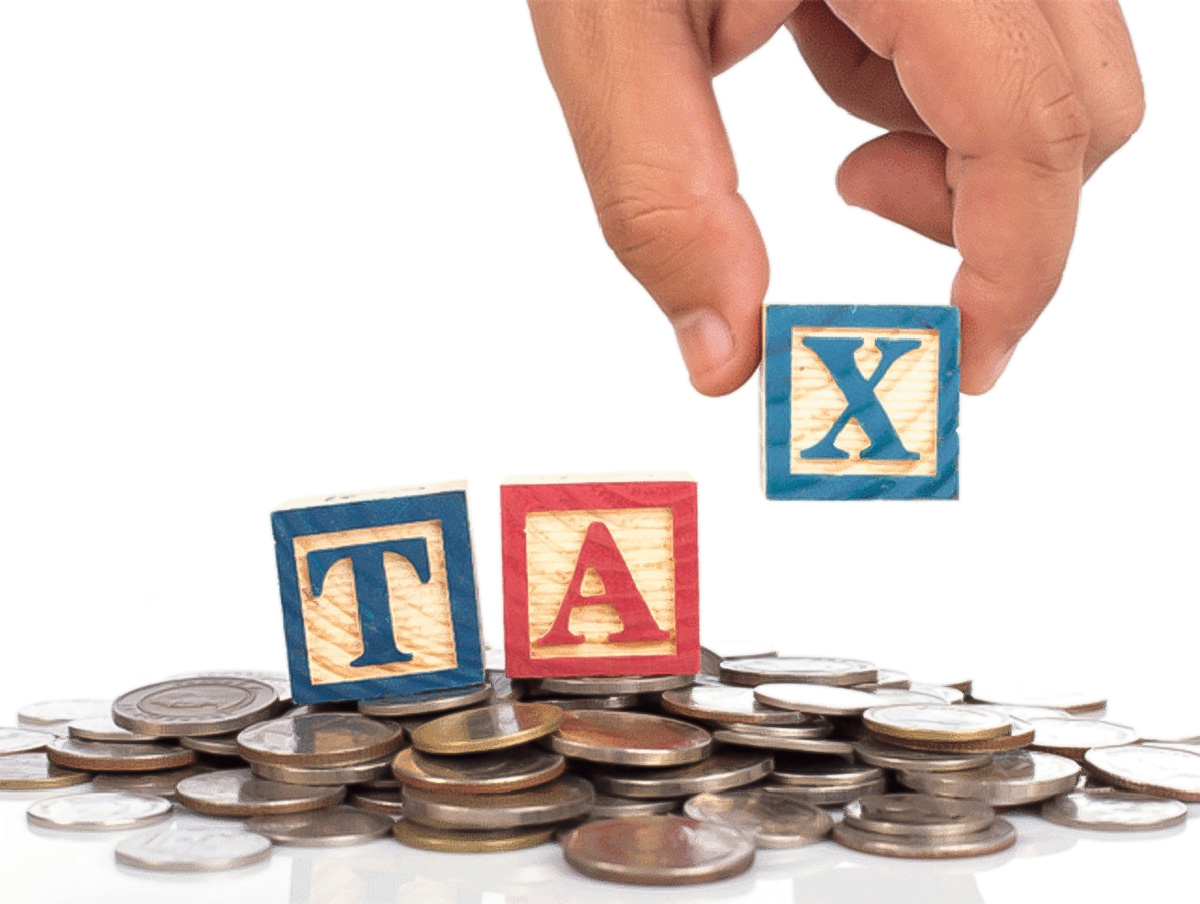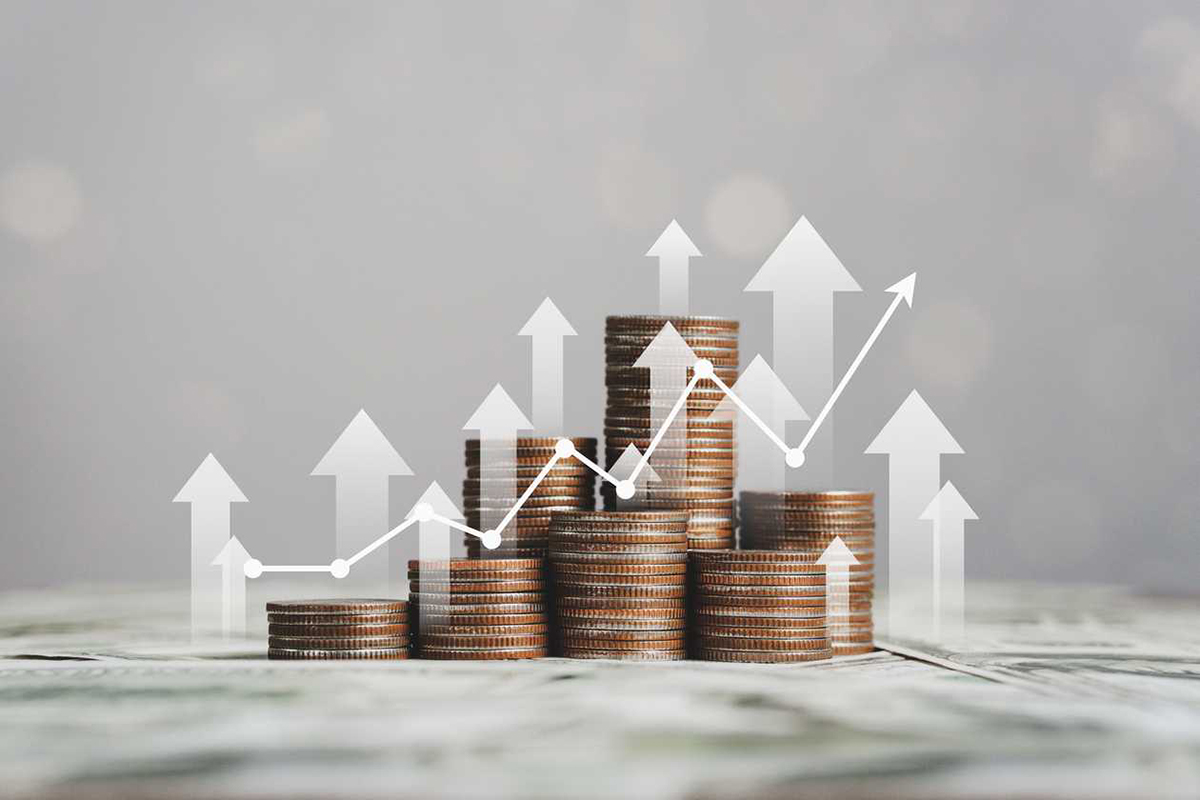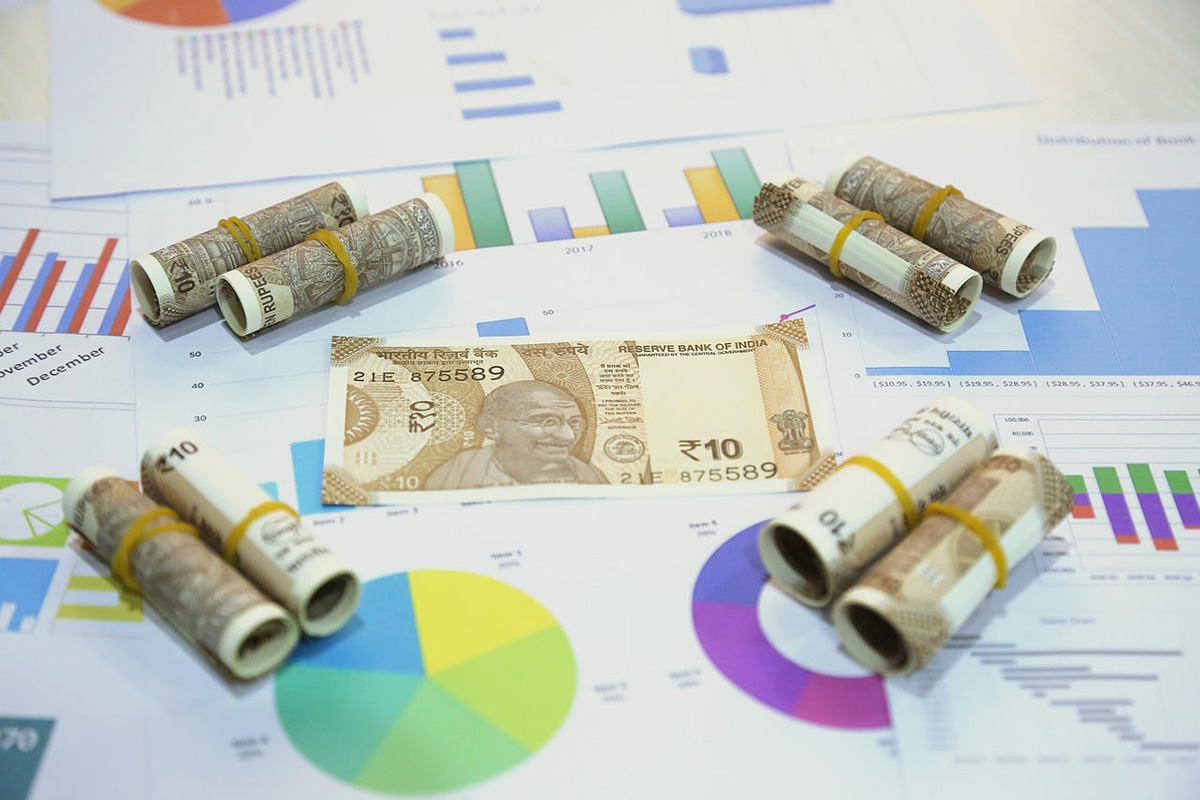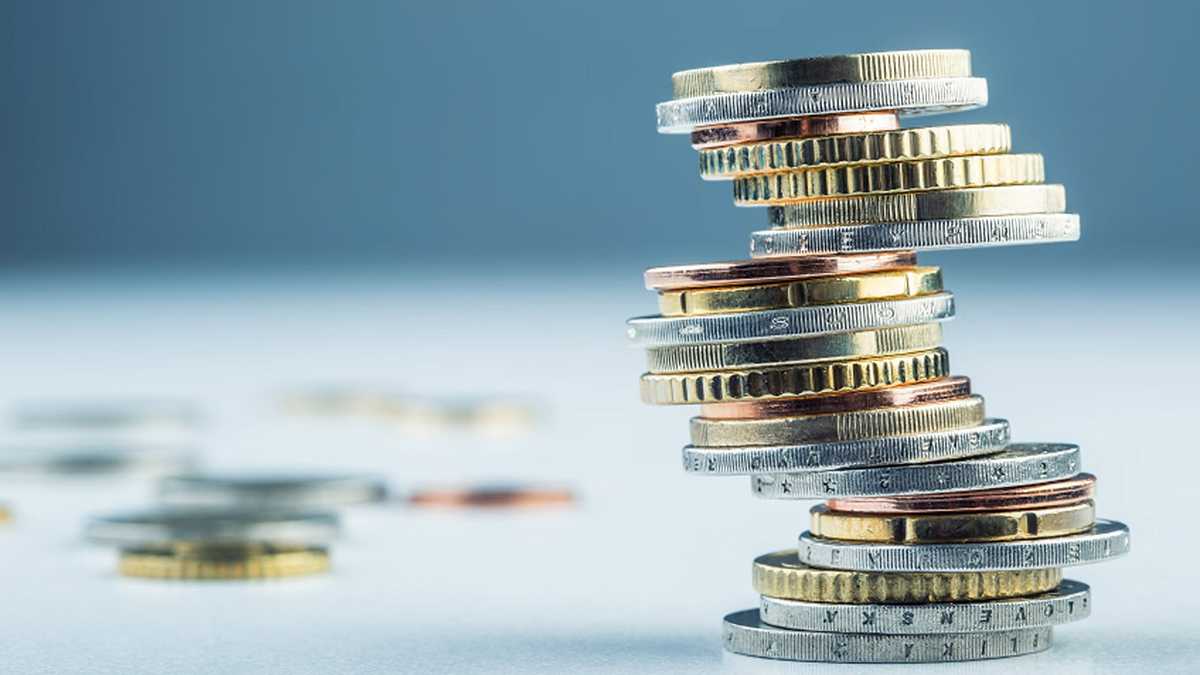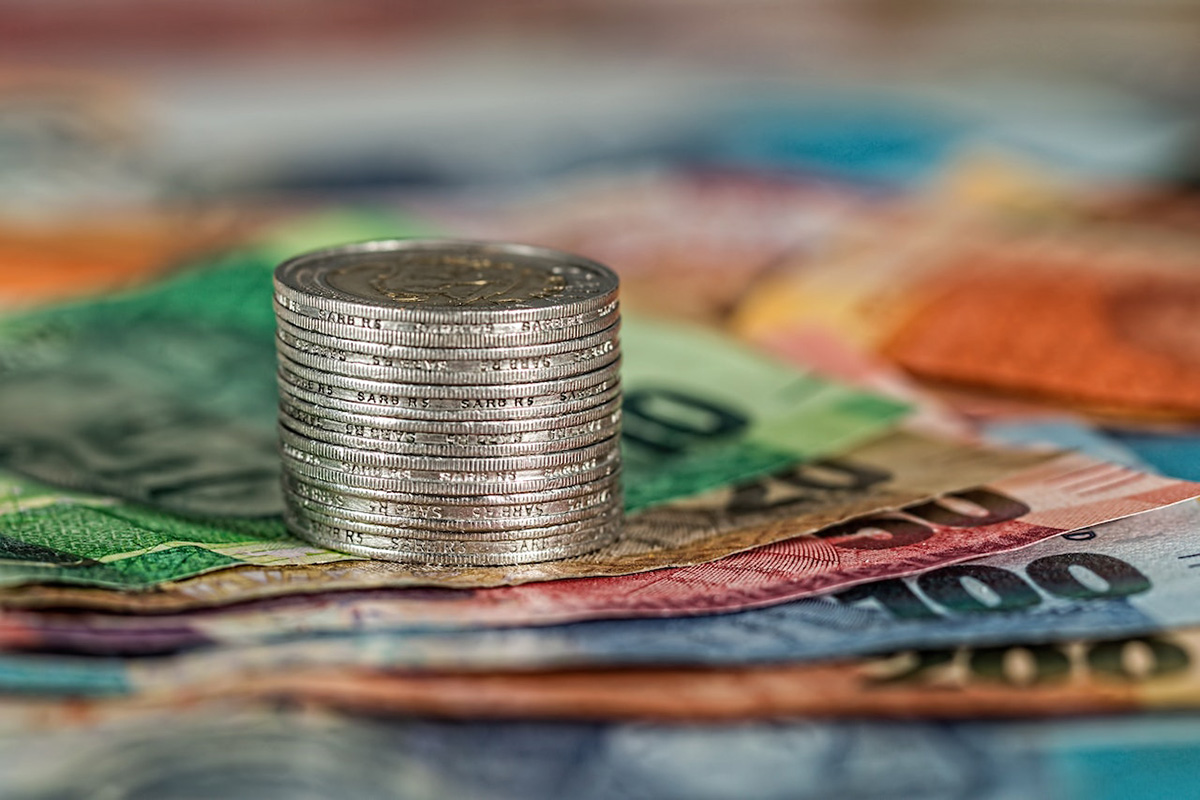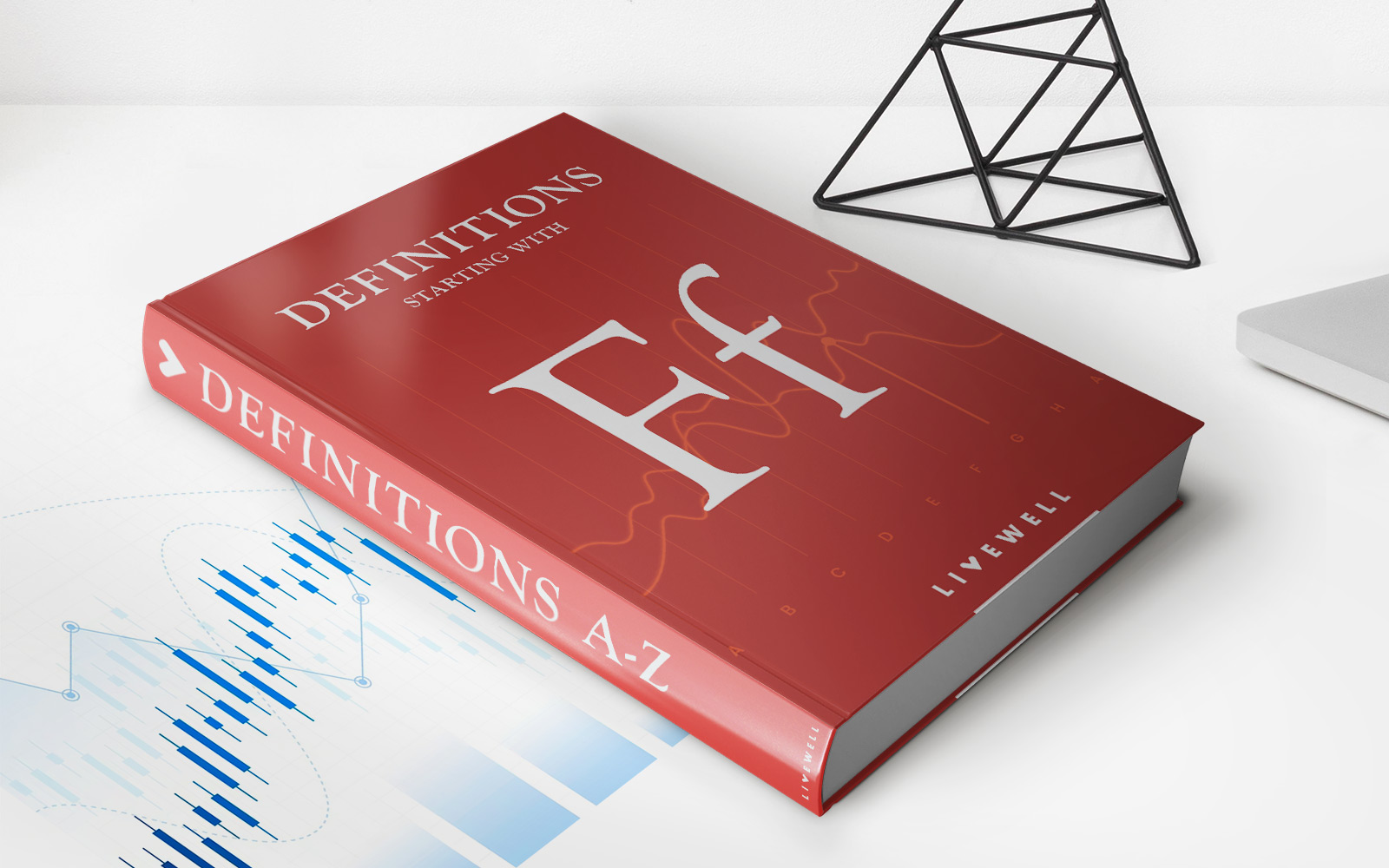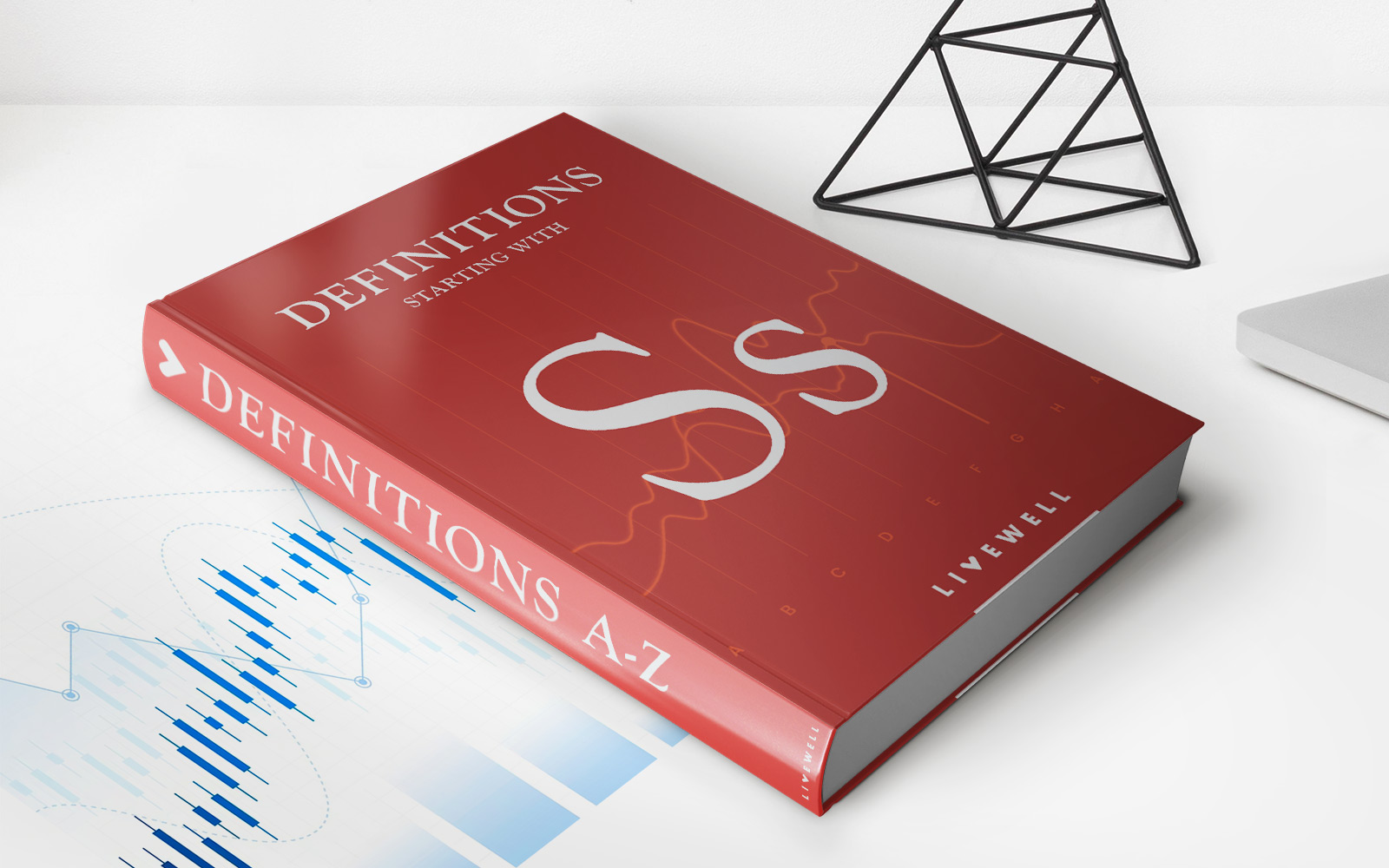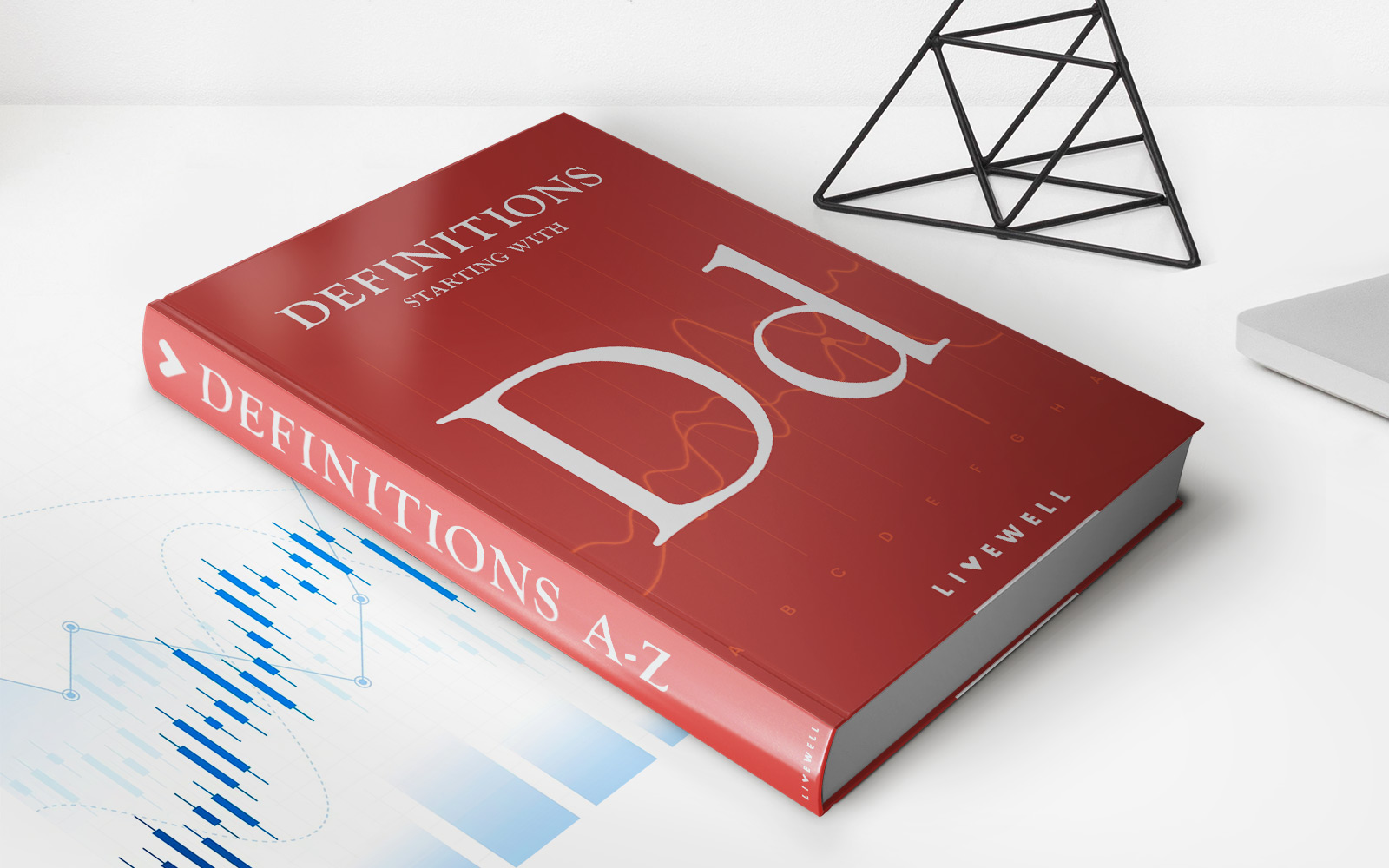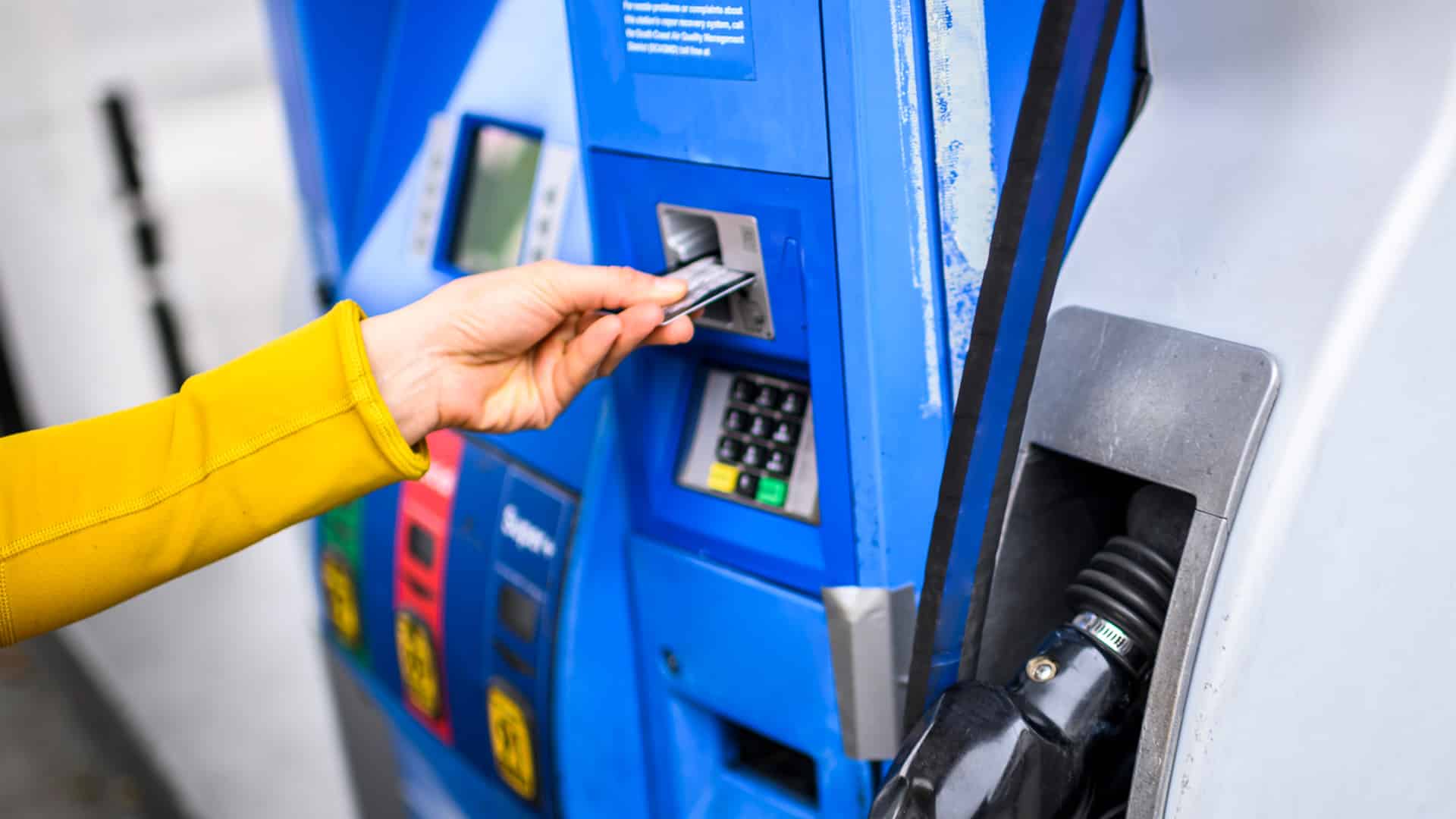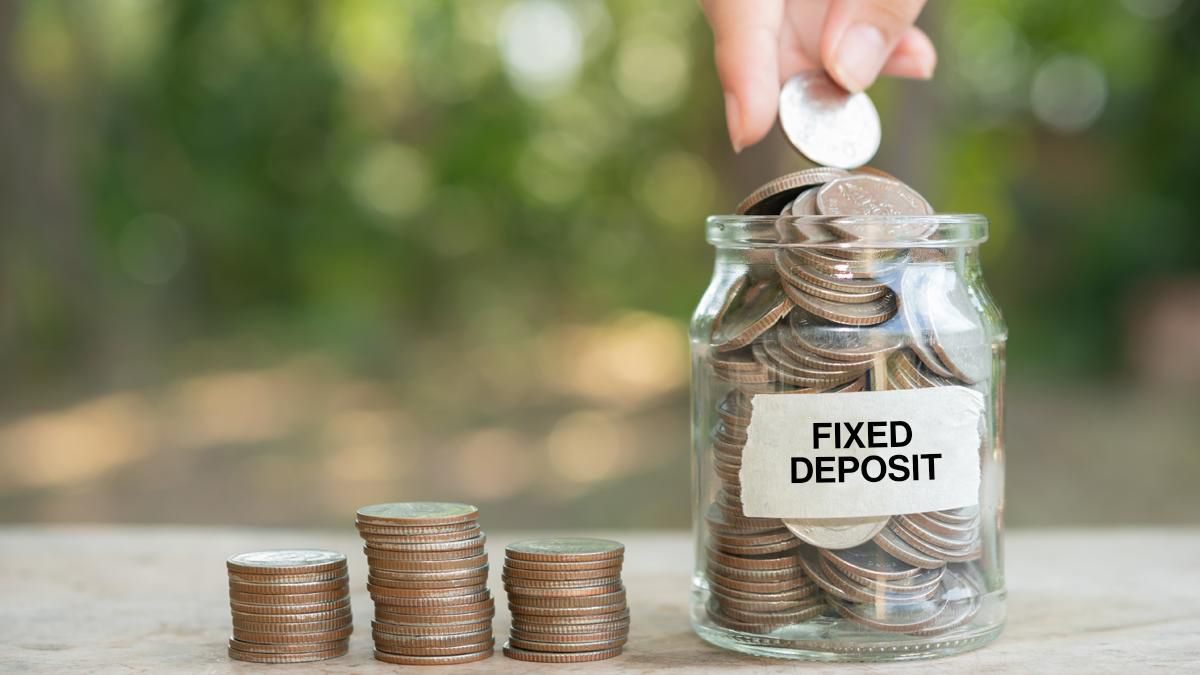

Finance
Why Invest In Fixed Deposits
Published: December 22, 2023
Discover the benefits of investing in fixed deposits and secure your finances. Explore the stability and reliability of fixed deposits today.
(Many of the links in this article redirect to a specific reviewed product. Your purchase of these products through affiliate links helps to generate commission for LiveWell, at no extra cost. Learn more)
Table of Contents
- Introduction
- What are Fixed Deposits?
- Benefits of Investing in Fixed Deposits
- Stability and Security of Fixed Deposits
- Guaranteed Returns
- Flexibility in Investment Tenure
- Tax Benefits
- Easy Application Process
- Diversification of Investment Portfolio
- Interest Rates for Fixed Deposits
- Factors to Consider when Investing in Fixed Deposits
- Conclusion
Introduction
Investing your hard-earned money is a decision that requires careful consideration and research. With numerous investment options available in the market, it can be overwhelming to choose the right avenue to grow your wealth. One investment option that has stood the test of time and continues to provide stability and security is fixed deposits.
Fixed deposits, also known as term deposits or time deposits, are financial instruments offered by banks and financial institutions that provide a fixed interest rate over a specified period of time. In simple terms, it involves depositing a lump sum amount of money for a predetermined tenure, during which you earn a fixed rate of interest on your investment.
Fixed deposits have been a popular choice for both seasoned investors and those new to the world of finance for several reasons. They offer a range of benefits such as stability, guaranteed returns, flexibility, tax benefits, and easy application processes.
In this article, we will delve deeper into the world of fixed deposits and explore the advantages that make them an attractive investment option. We will also discuss the factors to consider before investing in fixed deposits to help you make informed decisions regarding your financial goals.
So, if you are looking for a secure and reliable way to grow your wealth, read on to learn why fixed deposits should be a part of your investment portfolio.
What are Fixed Deposits?
Fixed deposits are financial instruments offered by banks and financial institutions that allow individuals to deposit a certain sum of money for a fixed period of time at a predetermined interest rate. This type of investment is considered low-risk and provides a stable return on investment.
When you open a fixed deposit account, you agree to keep your money with the bank or financial institution for a specific duration called the tenure. The tenure can range from a few months to several years, depending on your preference and the options offered by the institution.
During the tenure, the deposited amount earns interest at a fixed rate. This means that the interest rate remains constant throughout the entire duration of the fixed deposit. This fixed rate is usually higher than the interest rates offered on savings accounts, making fixed deposits an attractive investment option.
At the end of the tenure, you can choose to either withdraw the entire amount along with the accumulated interest or reinvest it for another term. The interest earned on fixed deposits is typically credited to your bank account on a monthly, quarterly, or annual basis.
Fixed deposits provide individuals with a secure and predictable investment avenue. The funds you deposit are generally insured by a deposit insurance scheme provided by the government or regulatory authorities, which adds an extra layer of security to your investment.
This type of investment is suitable for individuals who have a low risk appetite and are looking for stable returns on their investments. It is also an ideal option for those who have a specific financial goal in mind and want to earn a higher interest rate on their savings compared to traditional savings accounts.
Benefits of Investing in Fixed Deposits
Investing in fixed deposits offers several significant benefits that make it an attractive option for investors. Here are some key advantages of investing in fixed deposits:
1. Stability and Security: Fixed deposits are considered a low-risk investment option as they offer stability and security for your capital. Unlike other investment avenues, such as stocks or mutual funds, where the returns are subject to market fluctuations, fixed deposits provide a guaranteed return on investment.
2. Guaranteed Returns: When you invest in a fixed deposit, you know exactly how much interest you will earn over the tenure. The interest rates for fixed deposits are fixed at the time of investment, which means you have a clear idea of the returns you can expect. This predictability makes it easier for you to plan your finances and achieve your financial goals.
3. Flexibility in Investment Tenure: Fixed deposits offer flexibility in choosing the tenure that suits your needs. You can opt for short-term deposits, such as 3 months or 6 months, or go for longer tenures, such as 1 year, 3 years, or even 5 years. This flexibility allows you to align your investment with your financial goals and liquidity requirements.
4. Tax Benefits: Fixed deposits offer tax benefits under certain conditions. In many countries, the interest earned on fixed deposits is subject to tax deductions at source (TDS) if it exceeds a specified threshold. However, if you invest in a tax-saving fixed deposit, you can enjoy tax exemptions under applicable tax laws, thereby reducing your tax liability.
5. Easy Application Process: Opening a fixed deposit account is a simple and hassle-free process. Most banks and financial institutions offer online applications, allowing you to apply for a fixed deposit from the comfort of your own home. The documentation requirements are minimal, making it convenient for individuals to start investing in fixed deposits.
6. Diversification of Investment Portfolio: Fixed deposits provide an opportunity to diversify your investment portfolio. By allocating a portion of your funds to fixed deposits, you can balance the risk and returns of your overall investment strategy. This diversification helps mitigate risk and adds stability to your portfolio.
With these advantages, it’s clear why investing in fixed deposits is a popular choice among investors seeking stability, guaranteed returns, and ease of investment. Before investing, it’s important to consider the interest rates offered, the terms and conditions of the fixed deposit, and your own financial goals to ensure it aligns with your investment strategy.
Stability and Security of Fixed Deposits
One of the key reasons why fixed deposits are favored by investors is the stability and security they offer. Let’s explore these aspects in detail:
1. Stability: Fixed deposits provide a stable return on investment. Unlike investments in the stock market or mutual funds, which are subject to market fluctuations, the interest rate offered on fixed deposits remains constant throughout the tenure. This stability ensures that your investment is not affected by market volatility and provides a predictable income stream.
2. Capital Preservation: With fixed deposits, there is a high level of capital preservation. The initial amount you deposit in a fixed deposit account is secure and is generally not exposed to market risks. This means that even if the market experiences a downturn or economic uncertainties arise, the principal amount invested in a fixed deposit remains safe, guaranteeing the return of your capital at the end of the tenure.
3. Government Deposit Insurance: In many countries, fixed deposits are protected by government deposit insurance schemes. These schemes aim to safeguard the deposits of individual investors in case of bank failures or financial distress. The insurance coverage typically guarantees a certain amount of your deposit, providing an additional layer of security to your investment.
4. Regulatory Oversight: Banks and financial institutions that offer fixed deposits are subject to strict regulations and oversight by regulatory authorities. These regulations ensure that these institutions maintain a certain level of financial stability and adhere to the rules and guidelines set by the governing bodies. This oversight provides further assurance to investors regarding the safety of their fixed deposits.
5. Reputable Institutions: When choosing a bank or financial institution to invest in fixed deposits, it is important to select reputable and well-established institutions. Opting for institutions with a strong track record and credibility reduces the risk of any potential defaults or financial instability.
The stability and security of fixed deposits make them an ideal investment option for individuals who prioritize capital preservation and seek a predictable income stream. It is important to note that while fixed deposits provide stability, the returns may be lower compared to more volatile investment options. However, for conservative investors who value security, fixed deposits offer a reliable and low-risk avenue to grow their wealth.
Guaranteed Returns
One of the most appealing aspects of investing in fixed deposits is the guarantee of returns. Let’s explore why fixed deposits offer this advantage:
1. Fixed Interest Rate: When you invest in a fixed deposit, the interest rate is predetermined and fixed for the entire tenure. This means that you know exactly how much interest you will earn on your investment. Unlike other investment options that are subject to market fluctuations, the fixed interest rate of a deposit ensures a stable and predictable return.
2. Certainty in Earnings: The fixed interest rate allows you to accurately calculate the earnings you will receive from your fixed deposit. This certainty is particularly beneficial for individuals who have specific financial goals or budgets to meet, as they can plan their finances accordingly and rely on the expected earnings from the investment.
3. No Impact of Market Volatility: Fixed deposits are not influenced by market conditions or economic fluctuations. Regardless of how the market performs, the agreed-upon interest rate for the fixed deposit remains constant. This shields your investment from the volatility and uncertainties of financial markets, providing peace of mind and financial stability.
4. Capital Protection: Your principal amount in a fixed deposit is protected, ensuring that you will receive it back in full at the end of the tenure. This capital protection guarantees that you will not suffer any losses on your initial investment, regardless of external factors that may affect the financial markets.
5. Low Risk, Reliable Returns: Fixed deposits are considered low-risk investments, ideal for conservative investors. The guaranteed returns on fixed deposits offer a reliable source of income, making them an attractive option for individuals who prioritize stability and consistent earnings.
It is important to note that the interest rate offered on fixed deposits may vary from bank to bank and depend on the tenure of the investment. Generally, longer-term fixed deposits tend to offer higher interest rates. Therefore, it is advisable to shop around and compare rates offered by different financial institutions to optimize your returns.
Investing in fixed deposits provides a secure and predictable avenue for earning a guaranteed return on your investment. Whether you are saving for a specific goal or looking for a stable source of income, fixed deposits offer the peace of mind and financial certainty that many investors seek.
Flexibility in Investment Tenure
One of the advantages of investing in fixed deposits is the flexibility they offer in terms of investment tenure. Let’s explore why this flexibility is beneficial:
1. Customizable Investment Period: Fixed deposits allow you to choose the tenure that suits your financial needs and goals. Whether you prefer a short-term investment of a few months or a long-term commitment of several years, fixed deposits offer a wide range of options. This flexibility allows you to align your investment tenure with your specific financial objectives.
2. Short-Term Investment: If you have short-term financial goals or anticipate the need for liquidity in the near future, you can opt for a short-term fixed deposit. Short-term deposits typically range from a few months to a year. Investing in a short-term fixed deposit allows you to earn a competitive interest rate while retaining the flexibility to access your funds when needed.
3. Long-Term Investment: On the other hand, if you have a long-term outlook and can afford to keep your funds tied up for an extended period, you can choose a long-term fixed deposit. Long-term deposits are typically available for multiple years and often offer higher interest rates compared to short-term deposits. This allows you to maximize your returns over the extended tenure.
4. Roll Over or Renewal Options: At the end of the tenure, fixed deposits often provide options to roll over or renew the investment. Rolling over means reinvesting the matured amount into another fixed deposit for a new tenure. This flexibility allows you to continue earning returns on your investment and can be a useful strategy for long-term wealth accumulation.
5. Laddering Strategy: The flexibility in investment tenure also enables investors to employ a laddering strategy. Laddering involves dividing the investment amount across multiple fixed deposits with varying tenures. This strategy helps to balance interest rate risk and offers regular liquidity as deposits mature at different intervals.
The flexibility in investment tenure offers various advantages to investors. It allows you to tailor your fixed deposit investment to suit your specific financial goals, liquidity needs, and risk appetite. Before deciding on the tenure, it is essential to consider your financial requirements, future cash flow, and interest rate outlook to make a well-informed investment decision.
By taking advantage of the flexibility in investment tenure, fixed deposits can be a valuable addition to your investment portfolio, providing stability, steady returns, and the ability to adapt to your changing financial circumstances.
Tax Benefits
Investing in fixed deposits can offer several tax benefits, depending on the tax regulations in your country. Let’s explore the potential tax advantages of investing in fixed deposits:
1. Tax Deductions: In many countries, the interest earned on fixed deposits is subject to tax, commonly known as Tax Deducted at Source (TDS). The TDS is deducted by the bank or financial institution at a specified rate before crediting the interest to your account. This ensures that you meet your tax obligations on the interest earned from the fixed deposit.
2. Tax Exemptions for Senior Citizens: Some countries provide additional tax benefits for senior citizens who invest in fixed deposits. This may include higher exemption limits or lower tax rates on the interest income earned. These incentives aim to support retirees and provide them with a stable income stream.
3. Tax-Saving Fixed Deposits: Many countries offer specific fixed deposits known as tax-saving fixed deposits, designed to provide tax benefits to investors. These deposits come with a lock-in period, typically five years, and offer tax deductions on the amount invested. Investing in tax-saving fixed deposits can help reduce your taxable income, resulting in lower tax liabilities.
4. Tax-Exempt Institutions: In some countries, certain financial institutions, particularly those regulated by the government or specific authorities, offer fixed deposits that are exempt from tax. These tax-exempt fixed deposits can provide a higher post-tax return compared to regular fixed deposits, making them an attractive option for investors seeking to maximize their earnings.
5. Tax Planning and Wealth Preservation: Fixed deposits can be a valuable tool for tax planning and wealth preservation. They offer a relatively stable and tax-efficient avenue for individuals to keep their savings and investment income. By strategically utilizing the tax benefits associated with fixed deposits, you can optimize your tax liabilities while preserving your wealth.
It is important to note that the tax benefits associated with fixed deposits may vary from country to country and are subject to specific tax laws and regulations. It is advisable to consult with a qualified tax professional or financial advisor to understand the tax implications and benefits that apply to your individual circumstances.
By taking advantage of the tax benefits offered by fixed deposits, you can enhance the post-tax returns on your investment and effectively manage your tax liabilities. However, it is essential to ensure that you comply with the tax regulations and complete the necessary documentation and reporting requirements to enjoy these tax benefits.
Easy Application Process
Opening a fixed deposit account comes with a straightforward and user-friendly application process. Let’s explore the ease and convenience of applying for a fixed deposit:
1. Online Applications: Many banks and financial institutions provide online platforms that allow you to apply for a fixed deposit from the comfort of your own home. These online applications eliminate the need for physical branch visits and paperwork. You can easily access the bank’s website or mobile app, fill out the necessary details, and submit your application with just a few clicks.
2. Minimal Documentation: The documentation requirements for opening a fixed deposit account are typically straightforward and require minimal paperwork. You will generally need to provide identification documents such as a valid passport, identification card, or driver’s license. Additionally, you may need to furnish proof of address, such as a recent utility bill or bank statement.
3. Quick Account Setup: Once you have submitted your application, the account setup process for a fixed deposit is usually swift. The bank or financial institution will review your application and, upon approval, provide you with the account details. This enables you to start depositing funds into your fixed deposit account promptly.
4. Flexibility in Funding Options: Fixed deposits offer the flexibility to fund your account through various channels. You can choose to transfer funds from your existing bank account, deposit cash at the branch, or even set up automatic transfers from your savings account. This convenience ensures that you can easily add funds to your fixed deposit account according to your preferences.
5. Account Management: Once your fixed deposit account is set up, managing your account is hassle-free. You can monitor your deposit, track the interest earned, and view your account details online. In addition, you can opt for email or SMS notifications to stay updated on the maturity date of your fixed deposit and any interest payouts.
The easy application process for fixed deposits saves you time and effort, allowing you to quickly start earning returns on your investment. Remember to compare and research different banks and financial institutions to find the best interest rates and terms that align with your financial goals.
Before applying for a fixed deposit account, it’s important to thoroughly read and understand the terms and conditions, including any penalties or charges for premature withdrawals. By doing so, you can make an informed decision and maximize the benefits of investing in fixed deposits.
Diversification of Investment Portfolio
Diversification is a key principle of investment strategy, and fixed deposits offer an opportunity to diversify your investment portfolio. Let’s explore how fixed deposits contribute to portfolio diversification:
1. Risk Mitigation: Investing in fixed deposits can help mitigate risk in your investment portfolio. While fixed deposits offer stable and predictable returns, they are considered low-risk investments. By allocating a portion of your portfolio to fixed deposits, you can reduce the overall risk exposure and create a more balanced investment strategy.
2. Stability and Consistency: Fixed deposits provide a reliable and steady income stream. The guaranteed returns and fixed interest rates ensure that you generate consistent earnings from your fixed deposit investments. This stability can help counterbalance the volatility of other investments, such as stocks or real estate, and provide a more stable foundation for your portfolio.
3. Capital Preservation: Fixed deposits prioritize the preservation of capital. The principal amount you invest in a fixed deposit is protected, ensuring that you will receive it back at the end of the tenure. This focus on capital preservation adds an element of security to your investment portfolio, especially during uncertain economic or market conditions.
4. Liquidity Option: Fixed deposits offer varying term lengths, allowing you to align your investments with different liquidity requirements. While long-term fixed deposits provide higher interest rates, shorter-term deposits offer greater flexibility and liquidity. This liquidity option allows you to access your funds when needed, providing additional flexibility and diversification within your portfolio.
5. Income Generation: Fixed deposits can serve as a reliable source of income in your investment portfolio. The interest earned on fixed deposits can supplement your regular income or provide a stable income during retirement. By including fixed deposits in your portfolio, you can create a diversified income stream that is not solely reliant on dividends, rental income, or stock market returns.
It is important to note that while fixed deposits offer stability and low-risk returns, they might not generate high yields compared to riskier investments. Therefore, it is crucial to strike the right balance and diversify your portfolio across different asset classes, such as stocks, bonds, real estate, and fixed deposits, to achieve your financial objectives.
By incorporating fixed deposits into your investment portfolio, you can enjoy the benefits of stability, capital preservation, and diversification. Consult with a financial advisor to determine the appropriate allocation for fixed deposits based on your risk tolerance, investment goals, and overall portfolio strategy.
Interest Rates for Fixed Deposits
The interest rate offered on fixed deposits plays a crucial role in determining the returns on your investment. Let’s explore the factors influencing interest rates for fixed deposits:
1. Market Conditions: Interest rates for fixed deposits are influenced by prevailing market conditions, specifically the monetary policy set by the central bank. When the central bank raises interest rates to control inflation or stimulate economic growth, fixed deposit rates tend to increase as well. Conversely, during periods of low inflation or economic slowdown, fixed deposit rates may be lower.
2. Tenure of the Deposit: The tenure or duration of the fixed deposit impacts the interest rate offered. Generally, longer tenures attract higher interest rates as they involve a longer commitment of funds from the investor. Financial institutions may incentivize longer-term deposits to access a stable source of funding and to encourage customer loyalty.
3. Size of the Deposit: The amount you deposit can also affect the interest rate. Financial institutions may offer higher interest rates for larger deposits as they are more desirable from a business perspective. This is because larger deposits allow banks to deploy the funds for longer periods and generate more substantial returns.
4. Bank Policies and Competition: Each bank sets its own policies and strategies for fixed deposit interest rates. Financial institutions may offer competitive interest rates to attract customers and retain deposits. Researching and comparing the rates offered by different banks can help you find the most attractive interest rates for your fixed deposit.
5. Economic Outlook: The overall economic outlook, including factors such as inflation, interest rate trends, and market stability, can impact fixed deposit rates. In times of high inflation or economic uncertainty, financial institutions may offer higher interest rates to incentivize individuals to invest in fixed deposits.
It is important to note that fixed deposit rates can vary from bank to bank and may change over time. Financial institutions regularly review and adjust their fixed deposit rates in response to market conditions and internal policies. Therefore, it is advisable to stay updated on the current rates and compare offerings from different banks before making an investment decision.
Additionally, it is essential to consider the impact of inflation when assessing the attractiveness of fixed deposit rates. While fixed deposits provide stable returns, the purchasing power of your returns may be eroded by inflation over time. Evaluating the nominal interest rate along with the prevailing inflation rate will help you assess the real rate of return on your investment.
By understanding the factors influencing interest rates for fixed deposits, you can make informed investment decisions and maximize the potential returns on your fixed deposit investments.
Factors to Consider when Investing in Fixed Deposits
When investing in fixed deposits, there are several factors to consider to ensure that your investment aligns with your financial goals and priorities. Let’s explore the key factors that should be evaluated:
1. Interest Rates: The interest rate offered on fixed deposits is a crucial factor to consider. Compare rates offered by different banks or financial institutions to find the best possible returns on your investment. Higher interest rates can significantly enhance your earnings over the tenure of the fixed deposit.
2. Tenure: The tenure of the fixed deposit is another significant consideration. Determine the duration for which you are comfortable locking in your funds. Short-term deposits provide more liquidity and flexibility, while long-term deposits may offer higher interest rates. Consider your financial goals, cash flow requirements, and future plans when deciding on the tenure.
3. Tax Implications: Understand the tax implications of investing in fixed deposits. In some countries, the interest earned on fixed deposits is subject to tax deductions at source (TDS). Evaluate the impact of taxes on your overall returns and consider tax-saving fixed deposits or other tax-efficient investment options if available.
4. Penalties for Premature Withdrawal: Familiarize yourself with the penalties or charges that may apply if you need to withdraw your funds prematurely. Early withdrawal of fixed deposits could result in reduced interest rates or penalty charges, which may impact your returns. Assess your financial circumstances and potential liquidity needs to minimize the risk of having to withdraw early.
5. Credibility and Stability of the Institution: Assess the credibility and stability of the bank or financial institution offering the fixed deposit. Research their financial standing, reputation, and customer reviews to ensure that your funds are secure and that they have a track record of honoring their commitments.
6. Deposit Insurance: Check if the bank or financial institution offering the fixed deposit is covered by a deposit insurance scheme provided by the government or regulatory authorities. Deposit insurance provides an added layer of security and protects your deposit up to a certain amount in case of bank failure or financial distress.
7. Reinvestment Options: Consider whether the fixed deposit offers reinvestment options at the end of the tenure. Having the ability to reinvest the matured amount into another fixed deposit allows you to continue earning returns on your investment without the hassle of opening a new account.
Assessing these factors before investing in fixed deposits will help you make informed decisions and optimize your returns. It is advisable to consult with a financial advisor or professional to understand how fixed deposits fit into your overall investment strategy and to ensure they align with your risk tolerance and financial objectives.
Conclusion
Investing in fixed deposits can be a valuable addition to your financial portfolio, offering stability, security, and attractive returns. Throughout this article, we have explored the various benefits of investing in fixed deposits, including stability and security, guaranteed returns, flexibility in investment tenure, tax benefits, easy application processes, and portfolio diversification.
Fixed deposits provide a reliable source of income, shielded from market fluctuations, making them an ideal choice for conservative investors or those looking to preserve their capital. The guaranteed returns and fixed interest rates offer stability and predictability, allowing you to plan and achieve your financial goals effectively.
The easy application process and minimal documentation requirements make it convenient for individuals to start investing in fixed deposits, while the option to choose from various tenure options provides flexibility to align your investment strategy with your financial needs.
Additionally, fixed deposits offer potential tax benefits, such as tax deductions and exemptions, depending on the tax regulations in your country. It is crucial to explore and understand these benefits to optimize your returns and manage your tax liabilities effectively.
Furthermore, including fixed deposits in your investment portfolio contributes to diversification, reducing risk exposure and adding stability to your overall strategy.
As with any investment, it is essential to consider factors such as interest rates, penalties for premature withdrawals, the credibility of the institution, and deposit insurance coverage when investing in fixed deposits. Evaluating these factors will help you make informed decisions and maximize the potential returns on your investment.
In conclusion, fixed deposits provide a secure and reliable avenue to grow your wealth, generating steady returns while preserving your capital. Whether you are saving for a specific financial goal, planning for retirement, or seeking income generation, fixed deposits can play a significant role in building a strong and diversified investment portfolio. Conduct thorough research, consult with professionals, and carefully evaluate your financial goals before embarking on your fixed deposit investment journey.
